DETECTION OF A 68 Kd PROTEIN BY
WESTERN IMMUNOBLOT IN SAMPLES REACTIVE TO BARTONELLA HENSELAE BY AN
IMMUNOFLUORESCENT ASSAY
Glen Ford, Joanna Mizgalska, Ronald
J. Moore and Robert Yolken
Bartonella henselae, a Gram
negative bacillus, is the etiological agent of cat-scratch disease (CSD).
CSD afflicts an estimated 22,000 persons in teh United States annually, with the
greatest prevalence occurring in the southern states(1). The
typical symptoms of CSD include sub-acute regional lymphadenopathy, bacillary
angiomatosis, hepatitis, malaise, anorexia, and a rash/papule at the bite or
scratch site. The most serious atypical symptoms are encephalopathy, with
accompanying seizers, combative behavior and coma(2,3).
Serological detection of antibody to Bartonella
henselae by indirect fluorescent assay has been the most widely used means
of clinical diagnosis(4). Recently, Western immunoblot assays
have shown to be of equivalent sensitivity compared to IFA in detecting
antibody, but with added specificity(5).
We report here results of an immunoblot
assay using whole cell extracts of B. henselae that has a high degree of
concordance with IFA(6). Thus, immunoreactivity to a 68 Kd
protein band is detectable in 96% (48/50) of samples that were positive by the
IFA procedure. In addition, 42% (12/27) of random feline samples reacted
with this band, an incidence similar to the published data on the seroprevalence
in various cat populations(7,8). This Western blot immunoassay
has been utilized in testing of serum samples from schizophrenia patients,
matched controls and mothers whose offspring developed schizophrenia.
This work was funded by a grant from
the Stanley Foundation.
Poster:
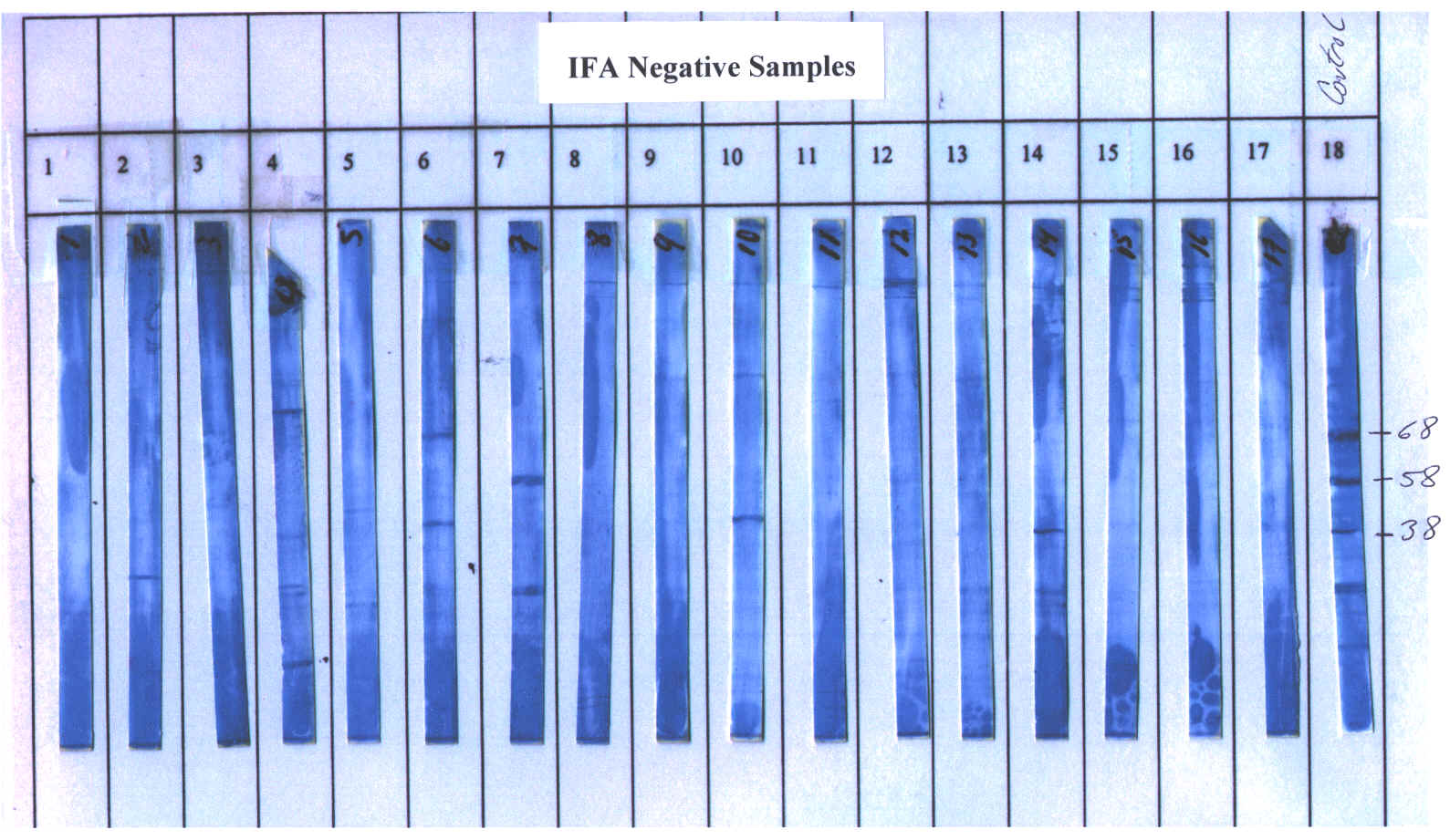 |
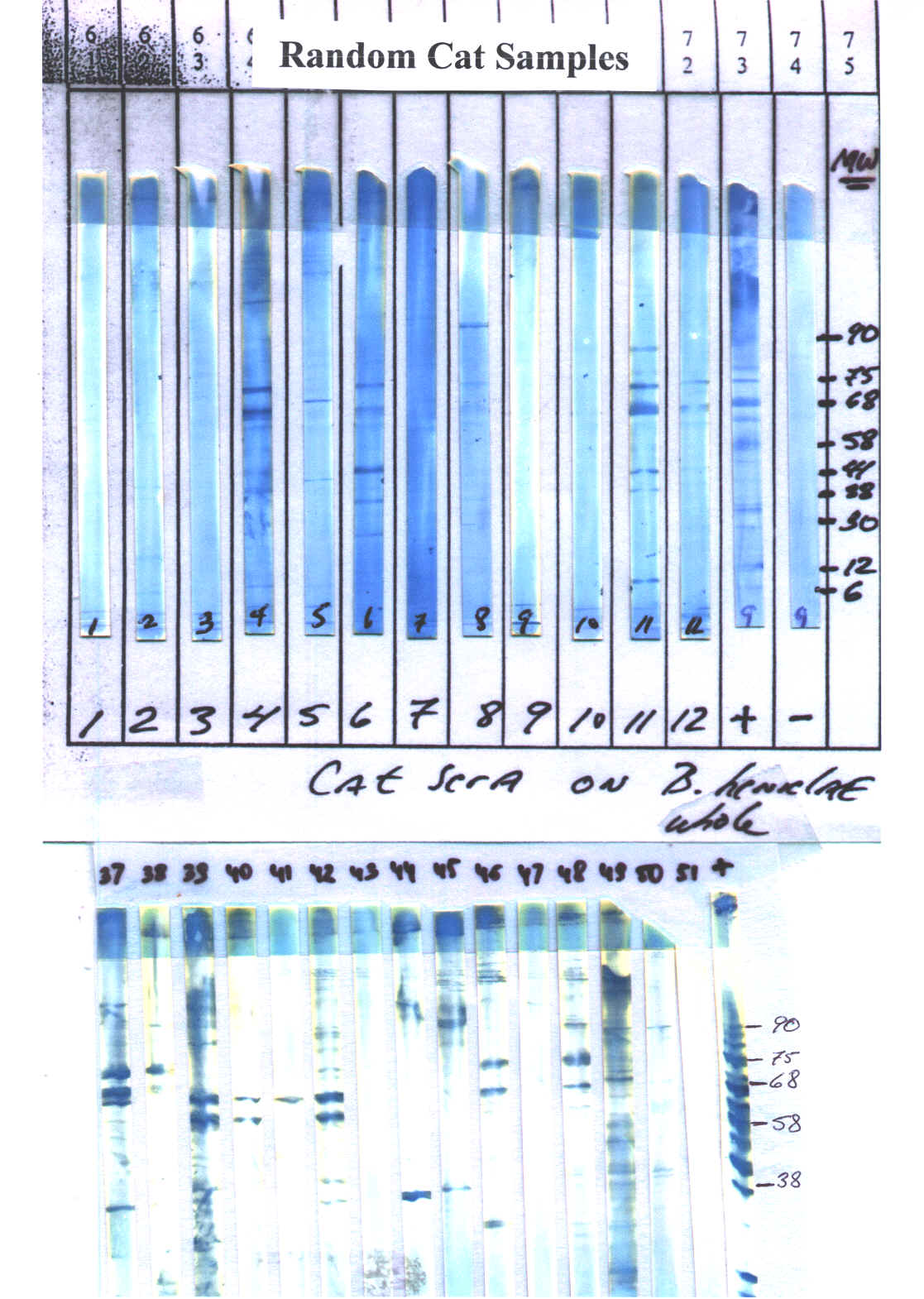 |
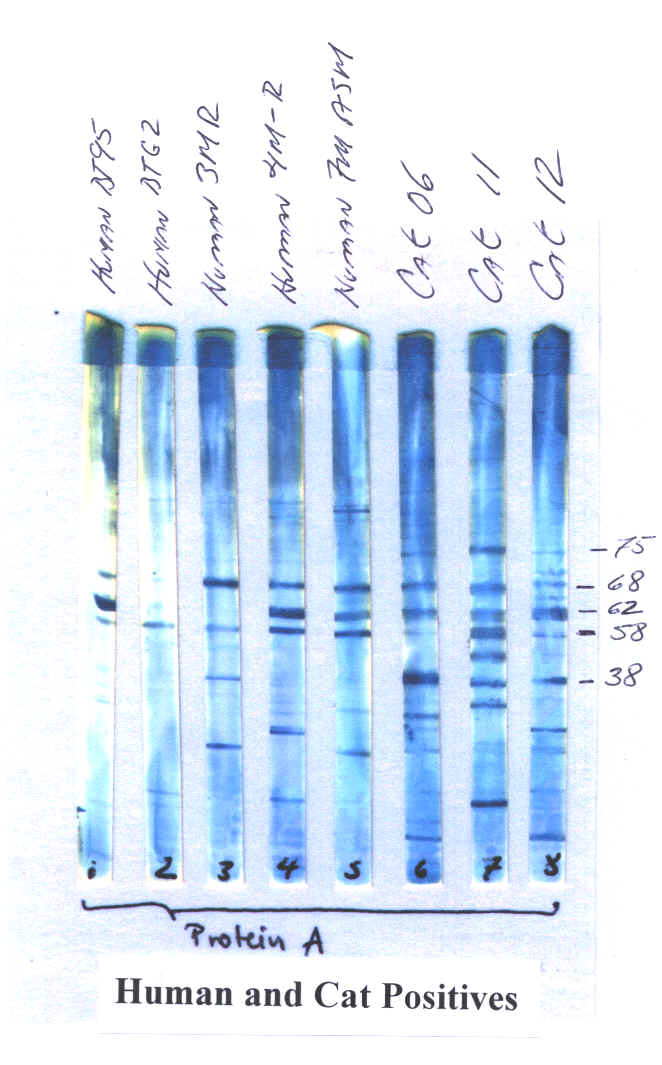 |
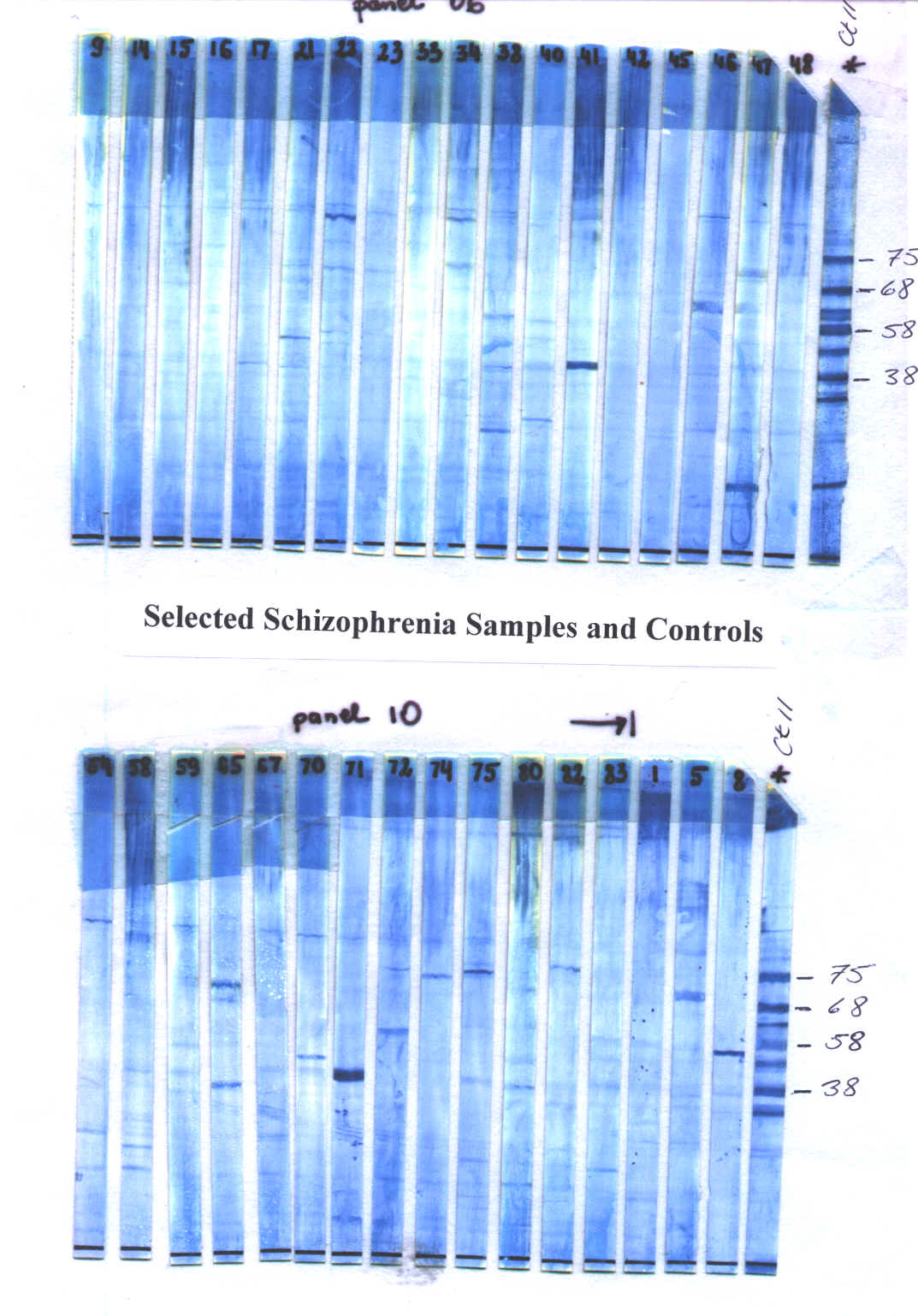 |
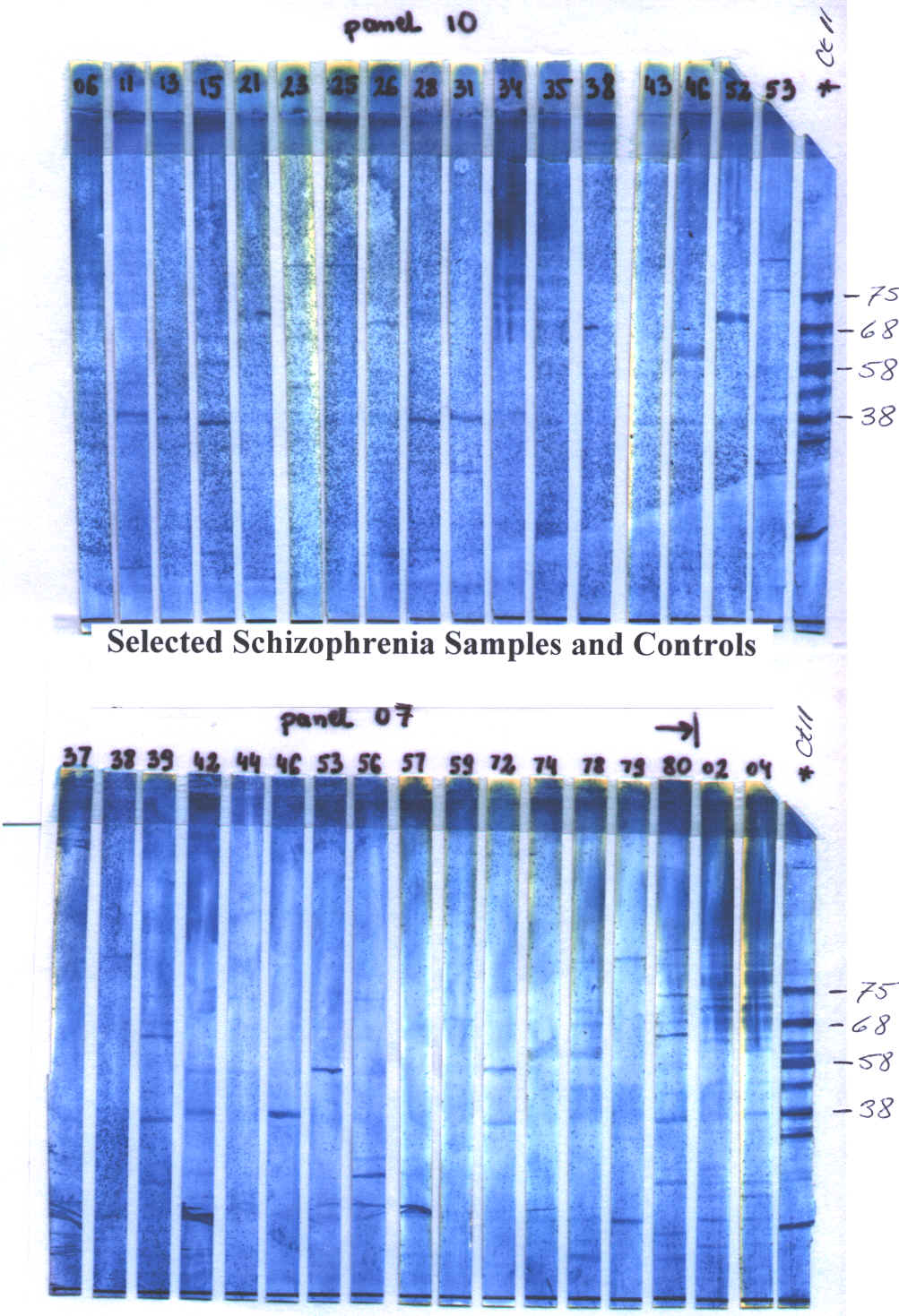 |
